The Advisory Board consists of a diverse panel of experts (from various disciplines and community members), with collective international and national experience in both addiction education and reducing behavioral health disparities among racial and ethnic minority populations. Through these partnerships, the REACH program creates a support network specifically designed to increase capacity of culturally informed physicians, while also increasing the recruitment of trainees from racial and ethnic minoritized backgrounds, who are able to meet the unique needs of racial/ ethnic minoritized patients with substance use disorders (SUDs).
Adina E. Bowe, MD
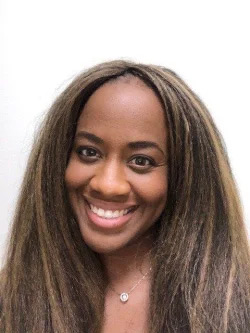 Adina E. Bowe is currently an Assistant Professor in Internal Medicine and Psychiatry at West Virginia University Charleston Division. She is board certified in Internal Medicine, Psychiatry and Addiction Psychiatry. Her special interests reside in treating medically complexed, dually diagnosed individuals with addiction disorders in rural communities. She is an advocate for the integrated care model of health delivery. Dr. Bowe is an active member of American Academy of Addiction Psychiatry, the American Medical Association and the American Psychiatric Association. In her spare time she enjoys visiting her family in the Bahamas, hiking and kayaking.
Adina E. Bowe is currently an Assistant Professor in Internal Medicine and Psychiatry at West Virginia University Charleston Division. She is board certified in Internal Medicine, Psychiatry and Addiction Psychiatry. Her special interests reside in treating medically complexed, dually diagnosed individuals with addiction disorders in rural communities. She is an advocate for the integrated care model of health delivery. Dr. Bowe is an active member of American Academy of Addiction Psychiatry, the American Medical Association and the American Psychiatric Association. In her spare time she enjoys visiting her family in the Bahamas, hiking and kayaking.
Kathryn L. Cates-Wessel, PI
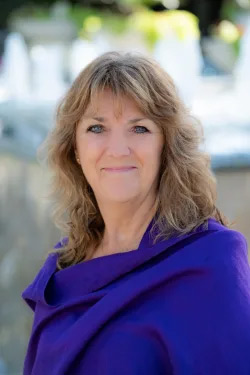 Ms. Cates-Wessel has 40 years of experience in the substance use disorder field in policy, coalition building, medical education and administration. She is Chief Executive Officer of the American Academy of Addiction Psychiatry (AAAP) and Principal Investigator and Project Director of several federally funded grants including, Providers Clinical Support System (PCSS), (pcssnow.org); State Opioid Response and Tribal Opioid Response (SOR-TOR) “Opioid Response Network” (opioidresponsenetwork.com) and the Minority Fellowship grant “Recognizing and Eliminating Disparities in Addiction Through Culturally Informed Healthcare” (REACH), (reachgrant.org). Prior to her work at AAAP, she was the Associate Director of Brown University’s Center for Alcohol and Addiction Studies for over 19 years and Executive Director of Physicians and Lawyers for National Drug Policy, a think tank of leaders from law and medicine advocating for prevention, treatment, and recovery individuals involved with substance use disorders. Prior to Brown University, she was the Associate Director of a residential treatment center for adolescents with substance use disorders and co-occurring mental disorders.
Ms. Cates-Wessel has 40 years of experience in the substance use disorder field in policy, coalition building, medical education and administration. She is Chief Executive Officer of the American Academy of Addiction Psychiatry (AAAP) and Principal Investigator and Project Director of several federally funded grants including, Providers Clinical Support System (PCSS), (pcssnow.org); State Opioid Response and Tribal Opioid Response (SOR-TOR) “Opioid Response Network” (opioidresponsenetwork.com) and the Minority Fellowship grant “Recognizing and Eliminating Disparities in Addiction Through Culturally Informed Healthcare” (REACH), (reachgrant.org). Prior to her work at AAAP, she was the Associate Director of Brown University’s Center for Alcohol and Addiction Studies for over 19 years and Executive Director of Physicians and Lawyers for National Drug Policy, a think tank of leaders from law and medicine advocating for prevention, treatment, and recovery individuals involved with substance use disorders. Prior to Brown University, she was the Associate Director of a residential treatment center for adolescents with substance use disorders and co-occurring mental disorders.
Michelle P. Durham, MD, MPH
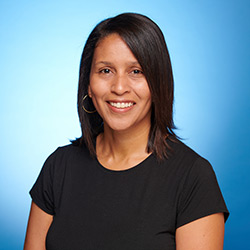 Michelle P. Durham, MD, MPH is an Assistant Professor of Psychiatry at Boston University School of Medicine (BUSM) and practices clinically at Boston Medical Center (BMC). She is board certified in adult, child and adolescent psychiatry and addiction medicine. Dr. Durham’s public health and clinical roles have always been in underserved and underresourced communities. She is dedicated to health equity and advocacy for equitable mental health treatment globally and locally. Dr. Durham’s research focuses on workforce development that reflects underrepresented groups, training and education for both the pediatric workforce and mental health professionals. She is the Director of Clinical Training for the BMC Transforming and Expanding Access to Mental Health in Urban Pediatrics (TEAM UP) grant funded Initiative to bring integrated care to pediatrics in urban based federally qualified community health centers. Through the TEAM UP initiative she developed an e-course for the pediatric care team to build foundational skills in working with children and adolescents with behavioral health concerns. She is the PI for two federally funded HRSA (Health Resources and Services Administration) grants: Maternal and Child Health Collaborative Office Rounds and the Achieving Culturally Competent and Equitable Substance use Services (ACCESS) Training Program.
Michelle P. Durham, MD, MPH is an Assistant Professor of Psychiatry at Boston University School of Medicine (BUSM) and practices clinically at Boston Medical Center (BMC). She is board certified in adult, child and adolescent psychiatry and addiction medicine. Dr. Durham’s public health and clinical roles have always been in underserved and underresourced communities. She is dedicated to health equity and advocacy for equitable mental health treatment globally and locally. Dr. Durham’s research focuses on workforce development that reflects underrepresented groups, training and education for both the pediatric workforce and mental health professionals. She is the Director of Clinical Training for the BMC Transforming and Expanding Access to Mental Health in Urban Pediatrics (TEAM UP) grant funded Initiative to bring integrated care to pediatrics in urban based federally qualified community health centers. Through the TEAM UP initiative she developed an e-course for the pediatric care team to build foundational skills in working with children and adolescents with behavioral health concerns. She is the PI for two federally funded HRSA (Health Resources and Services Administration) grants: Maternal and Child Health Collaborative Office Rounds and the Achieving Culturally Competent and Equitable Substance use Services (ACCESS) Training Program.
Dr. Durham is the Training Director for the BMC general psychiatry residency program, the Associate Director for the BMC Global and Local Center for Mental Health Disparities and the Medical Director for the BMC collaboration with the Boston Public Health Commission School based Mental Health Services. She received her MD from Louisiana State University in New Orleans, LA, completed her residency training at BMC and her child and adolescent psychiatry fellowship at Yale Child Study Center in New Haven, Connecticut. She received her Master’s in Public Health in Health Policy and Management from the Emory Rollins School of Public Health in Atlanta, GA. Prior to completing her medical education, she worked as the Assistant Director for the Center of Excellence on Health Disparities at the Morehouse School of Medicine in Atlanta, GA. She is involved at the state and national level in the Massachusetts Psychiatric Society, American Psychiatric Association and American Academy of Child and Adolescent Psychiatry to improve the standard of care for children and adolescents.
David A. Fiellin, MD
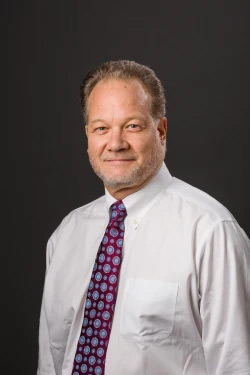 David A. Fiellin, MD, is a Professor of Medicine, Emergency Medicine and Public Health at Yale. He Directs the Yale Program in Addiction Medicine. He is an internist and board certified in Addiction Medicine. His NIH-funded research is on the interface between substance use and general medical settings including office-based practice, primary care, Emergency Department and HIV specialty settings. He has received awards from the American Association for the Treatment of Opioid Dependence, the American Society of Addiction Medicine, AMERSA, and the Hazelden Betty Ford Foundation. He is Co-Editor of the ASAM textbook, Principles of Addiction Medicine, 4th, 5th and 6th Editions, and on the Editorial Boards of 4 addiction specialty journals. He has served on the Board of Directors of the College on Problems of Drug Dependence and as Co-Chair of the Substance Abuse Interest Group at the Society of General Internal Medicine. He is Editor-in-Chief of the Journal of Addiction Medicine.
David A. Fiellin, MD, is a Professor of Medicine, Emergency Medicine and Public Health at Yale. He Directs the Yale Program in Addiction Medicine. He is an internist and board certified in Addiction Medicine. His NIH-funded research is on the interface between substance use and general medical settings including office-based practice, primary care, Emergency Department and HIV specialty settings. He has received awards from the American Association for the Treatment of Opioid Dependence, the American Society of Addiction Medicine, AMERSA, and the Hazelden Betty Ford Foundation. He is Co-Editor of the ASAM textbook, Principles of Addiction Medicine, 4th, 5th and 6th Editions, and on the Editorial Boards of 4 addiction specialty journals. He has served on the Board of Directors of the College on Problems of Drug Dependence and as Co-Chair of the Substance Abuse Interest Group at the Society of General Internal Medicine. He is Editor-in-Chief of the Journal of Addiction Medicine.
Lacresha Hall, MD, FAPA, FASAM, ABAM
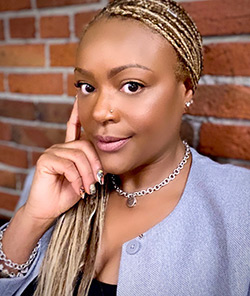 Dr. Hall is a fellow of the American Psychiatric Association and the American Society of Addiction medicine. She is also a Diplomate of the American Board of Psychiatry and Neurology in adult psychiatry, child and adolescent psychiatry, forensic psychiatry and the American Board of Addiction Medicine.
Dr. Hall is a fellow of the American Psychiatric Association and the American Society of Addiction medicine. She is also a Diplomate of the American Board of Psychiatry and Neurology in adult psychiatry, child and adolescent psychiatry, forensic psychiatry and the American Board of Addiction Medicine.
Dr. Hall is currently in private practice in Vancouver, British Columbia where she uses pharmacotherapy and psychodymanic psychotherapy to treat a variety of psychiatric disorders. She has a special interest in treating individuals with eating disorders, substance use disorders, personality disorders, and trauma. She is also interested in the impact of nutrition and exercise on mental health and co-hosts a weekly audio-based program on nutrition and exercise.
Ximena A. Levander, MD, MCR
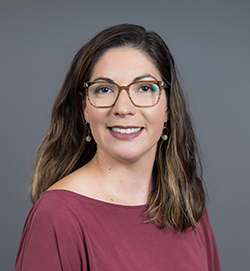 Ximena A. Levander, MD, MCR is an Assistant Professor of Medicine and Clinician Investigator at Oregon Health & Science University (OHSU) in the Division of General Internal Medicine and Geriatrics, Addiction Medicine Section. Her research interests focus on developing and implementing effective and innovative interventions for delivering evidence-based substance use disorder treatment in a patient-centered approach to people who use drugs. She is currently funded by a Learning Health Systems Science K12 to evaluate utilization of telemedicine for treatment of opioid use disorder and is a member of the OHSU Digital Health prototyping team. She is interested in how to ensure equitable access to addiction treatment using telemedicine and how telemedicine could expand access particularly to those with barriers to care including those living in rural communities, those experiencing homelessness, and women. In her current clinical practice, she splits her time working at the OHSU outpatient addiction and complex pain (ACP) clinic, on the OHSU inpatient addiction consult service (IMPACT), and at a harm reduction low-barrier buprenorphine bridge clinic (HRBR). She received a BS from Vanderbilt University and MD from Weill Cornell Medical College. She completed residency in internal medicine/primary care at University of Washington and fellowships in addiction medicine and Samuel Wise General Internal Medicine Clinical Research at OHSU. In her free time, she enjoys spending time with her partner and her rescue dog, exploring the outdoors – hiking, backpacking, skiing, rafting/kayaking, tending to the vegetable garden, and reading.
Ximena A. Levander, MD, MCR is an Assistant Professor of Medicine and Clinician Investigator at Oregon Health & Science University (OHSU) in the Division of General Internal Medicine and Geriatrics, Addiction Medicine Section. Her research interests focus on developing and implementing effective and innovative interventions for delivering evidence-based substance use disorder treatment in a patient-centered approach to people who use drugs. She is currently funded by a Learning Health Systems Science K12 to evaluate utilization of telemedicine for treatment of opioid use disorder and is a member of the OHSU Digital Health prototyping team. She is interested in how to ensure equitable access to addiction treatment using telemedicine and how telemedicine could expand access particularly to those with barriers to care including those living in rural communities, those experiencing homelessness, and women. In her current clinical practice, she splits her time working at the OHSU outpatient addiction and complex pain (ACP) clinic, on the OHSU inpatient addiction consult service (IMPACT), and at a harm reduction low-barrier buprenorphine bridge clinic (HRBR). She received a BS from Vanderbilt University and MD from Weill Cornell Medical College. She completed residency in internal medicine/primary care at University of Washington and fellowships in addiction medicine and Samuel Wise General Internal Medicine Clinical Research at OHSU. In her free time, she enjoys spending time with her partner and her rescue dog, exploring the outdoors – hiking, backpacking, skiing, rafting/kayaking, tending to the vegetable garden, and reading.
Rosalind de Lisser, MS, FNP, PMHNP
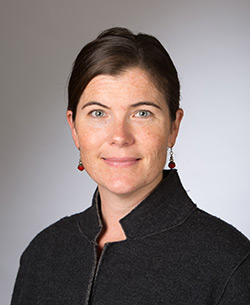 Rosalind de Lisser is an Associate Clinical Professor at UCSF School of Nursing. She is a Family and Psychiatric Nurse Practitioner and specializes in trauma informed integrated primary and behavioral health care. She is the clinical lead for behavioral health in the Women’s HIV Clinic at UCSF Health and a national advocate for trauma informed care. Her research is individual and system level factors associated with burnout and resilience in healthcare providers.
Rosalind de Lisser is an Associate Clinical Professor at UCSF School of Nursing. She is a Family and Psychiatric Nurse Practitioner and specializes in trauma informed integrated primary and behavioral health care. She is the clinical lead for behavioral health in the Women’s HIV Clinic at UCSF Health and a national advocate for trauma informed care. Her research is individual and system level factors associated with burnout and resilience in healthcare providers.
Paula Lum, MD, MPH
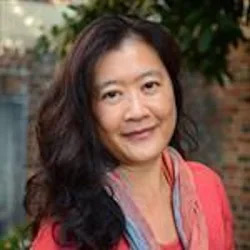 Paula J. Lum, MD MPH is Professor of Clinical Medicine and Program Director of the UCSF Primary Care Addiction Medicine Fellowship. She has been a faculty member in the Division of HIV, Infectious Diseases and Global Medicine at San Francisco General Hospital since 1999. Board certified in internal medicine and addiction medicine, Dr. Lum practices at the place where HIV, addiction, and poverty collide. Her research and clinical activities are grounded in evidence-based, patient-centered care to improve health outcomes and life quality of the urban poor. Her current areas of focus include: (1) HIV and viral hepatitis prevention and treatment in persons who inject drugs, (2) evidence-based interventions in primary care and non-traditional settings for substance use disorders and their complications, and (3) curricular interventions to provide health care professionals with the skills, knowledge, and confidence to offer effective patient-centered care to persons who use drugs.
Paula J. Lum, MD MPH is Professor of Clinical Medicine and Program Director of the UCSF Primary Care Addiction Medicine Fellowship. She has been a faculty member in the Division of HIV, Infectious Diseases and Global Medicine at San Francisco General Hospital since 1999. Board certified in internal medicine and addiction medicine, Dr. Lum practices at the place where HIV, addiction, and poverty collide. Her research and clinical activities are grounded in evidence-based, patient-centered care to improve health outcomes and life quality of the urban poor. Her current areas of focus include: (1) HIV and viral hepatitis prevention and treatment in persons who inject drugs, (2) evidence-based interventions in primary care and non-traditional settings for substance use disorders and their complications, and (3) curricular interventions to provide health care professionals with the skills, knowledge, and confidence to offer effective patient-centered care to persons who use drugs.
Alexander Y. Walley, MD, MSc
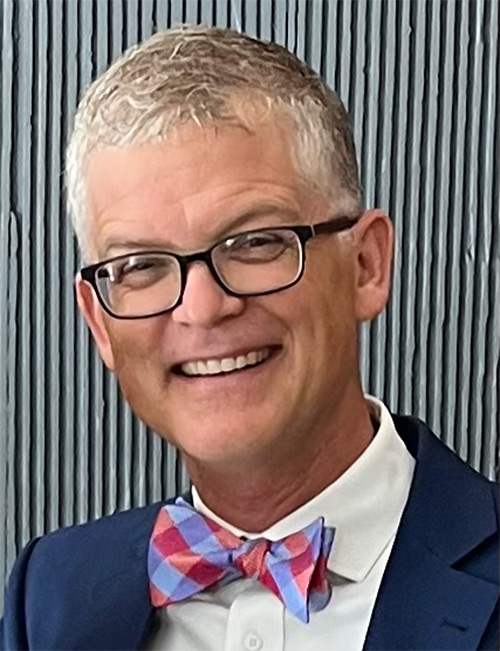 Alexander Y. Walley, MD, MSc, is Professor of Medicine at Boston University Chobanian & Avedisian School of Medicine, primary care physician and addiction specialist at Boston Medical Center focused on the medical complications of substance use, specifically HIV and overdose. He has led research studies on overdose and the integration of addiction specialty care and general medical care. He has developed an inpatient addiction consult service and low barrier walk-in addiction clinic. Dr. Walley is a founding director of the Grayken Addiction Medicine Fellowship and the president-elect of the American College of Academic Addiction Medicine. He serves as the medical director for the Massachusetts Department of Public Health’s Bureau of Substance Addiction Services and the Overdose Prevention Program which has trained and equipped over 100,000 people in Massachusetts’s communities with naloxone rescue kits, including people at-risk for overdose and their social networks.
Alexander Y. Walley, MD, MSc, is Professor of Medicine at Boston University Chobanian & Avedisian School of Medicine, primary care physician and addiction specialist at Boston Medical Center focused on the medical complications of substance use, specifically HIV and overdose. He has led research studies on overdose and the integration of addiction specialty care and general medical care. He has developed an inpatient addiction consult service and low barrier walk-in addiction clinic. Dr. Walley is a founding director of the Grayken Addiction Medicine Fellowship and the president-elect of the American College of Academic Addiction Medicine. He serves as the medical director for the Massachusetts Department of Public Health’s Bureau of Substance Addiction Services and the Overdose Prevention Program which has trained and equipped over 100,000 people in Massachusetts’s communities with naloxone rescue kits, including people at-risk for overdose and their social networks.
